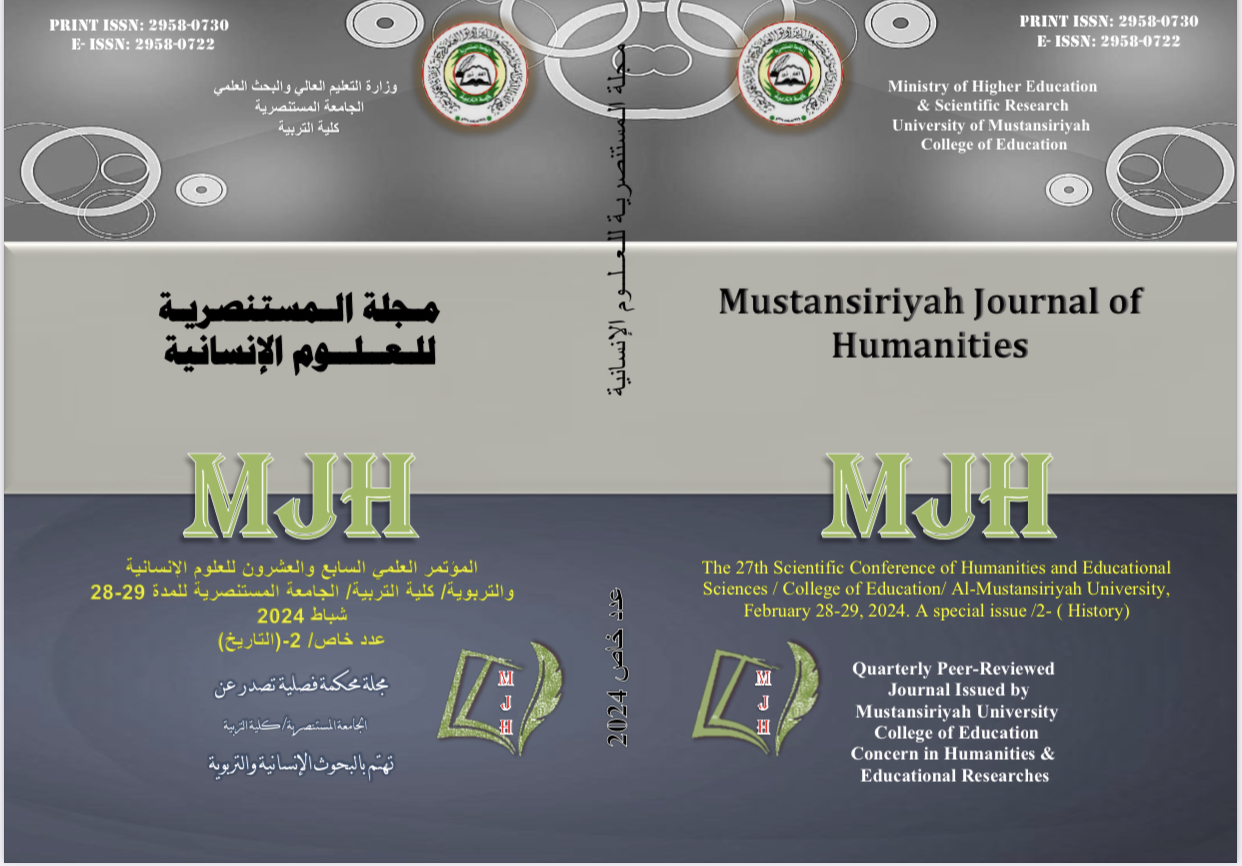The Islamic conquests during the Umayyad Caliphate under Walid ibn Abd al-Malik (86-96 AH / 705-714 CE) are elucidated through what Al-Dhahabi mentioned in his book "History of Islam and the Deaths of the Celebrities and Luminaries" (748 AH / 1347 CE)
DOI:
https://doi.org/10.47831/mjh.v2iخاص.467Keywords:
Al-Andalus, Khorasan, Al-Dhahabi, Qutayba ibn Muslim, Musa ibn Nusayr,Walid ibn Abd al-Malik.Abstract
A study was conducted on the Islamic conquests during the reign of Al-Walid ibn Abdul-Malik based on what Al-Dhahabi mentioned in his book "History of Islam and Deaths of Notables and Celebrities" (The study aimed to elucidate Al-Walid's role in building the Umayyad state, spreading Islam, and his political strategies, which were an extension of his father's policies. It also highlighted the role of some leaders whom he employed to strengthen his state and spread Islam beyond the Arabian Peninsula. Al-Walid succeeded his father, who left him a wealthy, resource-rich, powerful, fearsome, unified, and cohesive state, enabling him to implement numerous reforms. The Islamic state expanded eastward, northward, and westward, conquering territories beyond the river, reaching the doors of China, and establishing Arab rule in Al-Andalus. Islam spread to South Asia, and Muslims aspired to conquer Constantinople. Al-Walid consistently fought against the Byzantine Empire to secure his borders, with his brother Maslama ibn Abdul-Malik being a key figure in these wars. The sons of the caliph Al-Walid also participated in battles against the Byzantines, indicating his attention to this Front.





